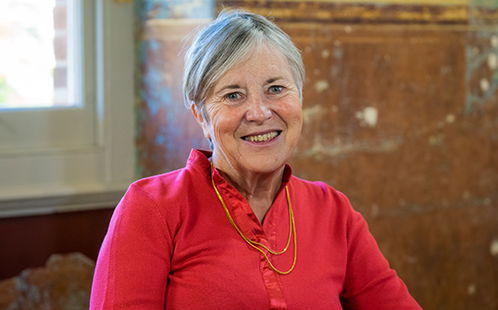International Day of Women and Girls in Science

Today is International Day of Women and Girls in Science (opens in a new window), so it seems appropriate to reflect on the many talented women in the discipline at our University, and around the world.
Established by the United Nations, this year’s International Day of Women and Girls in Science focuses on finding female-led sustainable solutions to the world’s problems.
With this theme in mind we asked Professor Sharon Bell AM, whose contribution to the promotion of gender equality in science was recognised with an Australia Day honour this year, about why it’s important to continue to champion female achievement.

Happy International Day of Women and Girls in Science, Professor Bell, why do you think a day like this is important?
A day like this remains important because while we have seen significant improvements in the participation of women in higher education and research, many women remain concentrated at the lower levels of their field and in specific fields, such as biological and medical sciences. Also, we are only just beginning to see high achieving women recognised for their contribution.
Your work in encouraging women into science has been fundamental to the transformation of the discipline – what are your future plans in this area?
Can you share a few of your most-admired women in science?
Well, there are obvious standouts like Nobel Laureate Professor Elizabeth Blackburn (opens in a new window) whose pioneering work on telomeres and telomerase, which may play central roles in how we age has been globally recognised, but also those such as Australian radio astronomer, physicist Ruby Payne-Scott (opens in a new window), whose contribution is only now being recognised.
As a female leader, what is your advice for girls and women who aspire to be a leader in the discipline?
Ruby Payne-Scott’s (opens in a new window) career evidences extraordinary scientific capability together with the personal qualities of commitment, resilience and tenacity. She was both denied opportunity, but also took bold and unconventional steps to seize opportunities as they arose. All aspiring female scientists need to be equally bold and confident to make and seize opportunities with confidence.
Recent statistics show less than 30 per cent of researchers worldwide are women and only around 30 per cent of all female students select STEM-related fields in higher education. What is Western Sydney University doing to encourage participation at both levels?
Western Sydney University has a range of initiatives to encourage participation of female students in STEM from school engagement programs such as the Women in Science and Engineering (WiSE) program, on-campus experiences, through to summer scholarships and initiatives to attract women into research and to support early career and mid-career researchers. As a participant in the Science in Australia Gender Equity (SAGE) program, the University has identified a range of factors that enable women to succeed and is working to ensure that opportunities are extended. We also have so many fantastic women scientists and research leaders at the University who are shaping the future as wonderful role models and mentors.
ENDS
9 February 2019
Mobile options:

